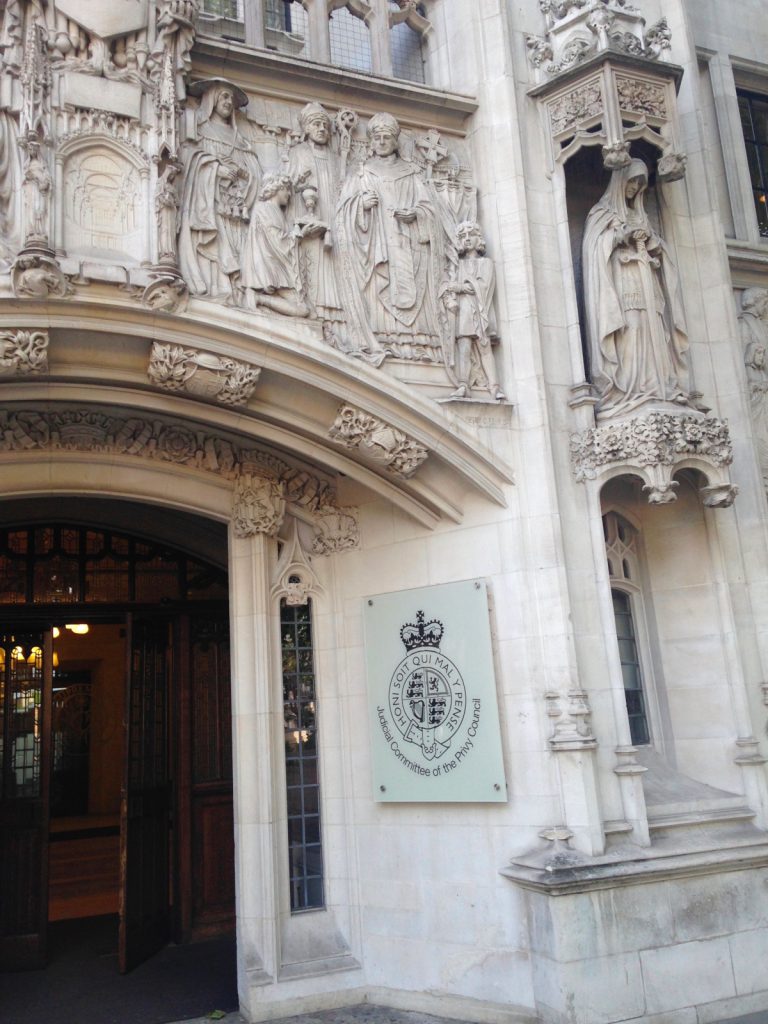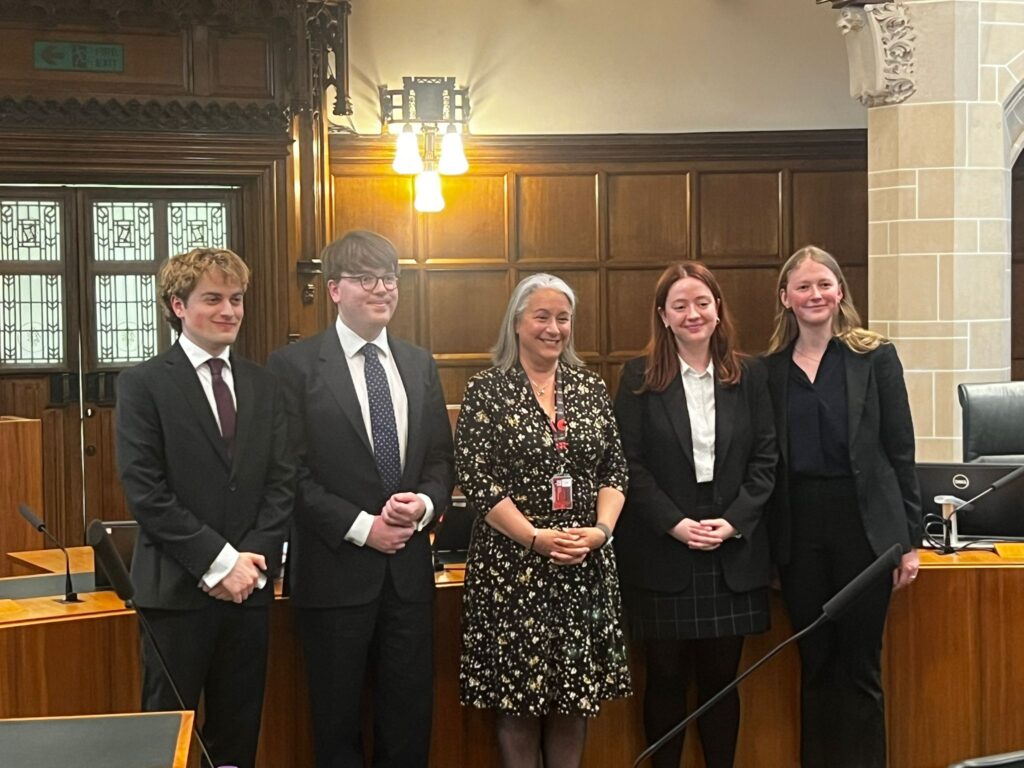Are you looking to enter the GDL Mooting Competition this year? Lecturer Omasan Brikinns, who assists with mooting activities at City, first gives us a rundown of the event…

The 2024/25 GDL final took place in the grand setting of the Supreme Court of the United Kingdom on 8th May 2025, offering an unforgettable experience for the participating law students. Against the backdrop of one of the nation’s most revered legal institutions, the finalists, Henry Tann, Jessica Bacon, Naomi Jennings and Luca Povoas showcased their advocacy skills before Alexia Zimbler, CLS Co-Head of Professional Programmes Department as the presiding judge. At the end of the event, which was well attended with over 50 guests watching in the gallery, Alexia was very gracious with personalised feedback for each finalist.
As a member of CLS’s Foundations of Land Law teaching team I can also testify to the rigorous character of the research and advocacy skills that were on showcase. Hard work, diligent preparation and eloquence were evident as competitors argued complex legal issues on a moot problem dealing with co-ownership of land, a secured creditor and overriding interests. These aspiring lawyers also walked away with cash prizes from The City Law School in recognition of their noble feat in reaching the final, with Henry Tann named the winner and going away with the top prize.
The mooter’s experience: Henry Tann
The GDL Moot at City was a whirlwind introduction to the arcane and exciting world of formalised disputation. At the outset, I was a complete beginner. I knew that a ‘moot point’ was a doubtful point but beyond lay uncharted territory. The introduction talk explaining mooting and the 4 New Square demonstration of how to moot were extremely helpful, and with John Snape’s Introduction to Mooting in hand, I was soon preparing for the first round of the GDL moot which followed hard on the heels of a tricky Equity tutorial. The dentist’s waiting room atmosphere in the corridor outside the moot room was soon dispelled by friendly introductions from my fellow mooters and our judge. My submissions and attempts to answer tricky judicial interventions went by in a flash. The feedback from the judge was really helpful, as was watching the other mooters’ submissions. It was a pleasant surprise that the GDL Moot already felt more collaborative than competitive.

In later rounds discussing the moot problems together with other students, while preparing and researching proved invaluable. Matching the pace of the GDL, the moot rounds swept through problems based on Contract Law, Criminal Law, and Tort Law and in what seemed no time at all I was gathered outside the Supreme Court with my fellow finalists for the last round of the moot. Court Room One, which I was far more used to seeing at a safe distance watching streamed Supreme Court Judgments, was a thrilling venue.
The final gave us all the chance to give our responses to a ‘nightmare scenario’ in land law in our lectures where a party with land law priority and a party with a secure debt were in conflict. I told myself to speak slowly and trusted in my thorough reading of the cases that I cited and rose to my feet to make my submissions at the Respondent’s side of the curved green-leather desk. I took care to signpost my argument and to guide the judge through my submissions.

After an impassioned moot and many engaging rounds it was tremendous to be chosen as the overall-moot winner, even though our successful submissions on behalf of the Respondent had succeeded in asserting the importance of not keeping a creditor out of their money over an innocent’ parties rights to an imagined idyllic holiday cottage. I thoroughly recommend the GDL moot to future mooters!
Henry is now a BVS Student at City. Before studying the GDL at City he completed a DPhil on the culture of at times litigious merchants in late medieval Italy. He is particularly interested in commercial law and competition law.

